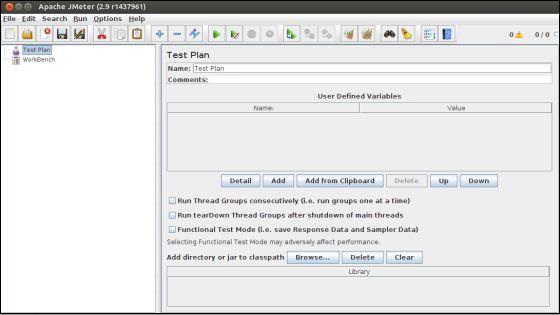System Requirement
| JDK | 1.6 or above. |
|---|---|
| Memory | No minimum requirement. |
| Disk Space | No minimum requirement. |
| Operating System | No minimum requirement. |
Step 1 − Verify Java Installation
First of all, verify whether you have Java installed in your system. Open your console and execute one of the following java commands based on the operating system you are working on.| OS | Task | Command |
|---|---|---|
| Windows | Open Command Console | c:\> java -version |
| Linux | Open Command Terminal | $ java -version |
| Mac | Open Terminal | machine: ~ joseph$ java -version |
| OS | Output |
|---|---|
| Windows |
java version "1.7.0_25" Java(TM) SE Runtime Environment (build 1.7.0_25-b15) Java HotSpot(TM) 64-Bit Server VM (build 23.25-b01, mixed mode) |
| Linux |
java version "1.7.0_25" Java(TM) SE Runtime Environment (build 1.7.0_25-b15) Java HotSpot(TM) 64-Bit Server VM (build 23.25-b01, mixed mode) |
| Mac |
java version "1.7.0_25" Java(TM) SE Runtime Environment (build 1.7.0_25-b15) Java HotSpot(TM) 64-Bit Server VM (build 23.25-b01, mixed mode) |
Step 2 − Set Java Environment
Set the JAVA_HOME environment variable to point to the base directory location, where Java is installed on your machine. For example −| OS | Output |
|---|---|
| Windows | Set the environment variable JAVA_HOME to C:\Program Files\Java\jdk1.7.0_25 |
| Linux | export JAVA_HOME=/usr/local/java-current |
| Mac | export JAVA_HOME=/Library/Java/Home |
| OS | Output |
|---|---|
| Windows | Append the string; C:\Program Files\Java\jdk1.7.0_25\bin to the end of the system variable, Path. |
| Linux | export PATH=$PATH:$JAVA_HOME/bin/ |
| Mac | not required |
Step 3 − Download JMeter
Download the latest version of JMeter from http://jmeter.apache.org/download_jmeter.cgi. For this tutorial, we downloaded apache-jmeter-2.9 and copied it into C:\>JMeter folder.The directory structure should look like as shown below −
- apache-jmeter-2.9
- apache-jmeter-2.9\bin
- apache-jmeter-2.9\docs
- apache-jmeter-2.9\extras
- apache-jmeter-2.9\lib\
- apache-jmeter-2.9\lib\ext
- apache-jmeter-2.9\lib\junit
- apache-jmeter-2.9\printable_docs
Step 4 − Run JMeter
After downloading JMeter, go to the bin directory. In this case, it is /home/manisha/apache-jmeter-2.9/bin. Now click on the following −| OS | Output |
|---|---|
| Windows | jmeter.bat |
| Linux | jmeter.sh |
| Mac | jmeter.sh |
 This is the main page and the default page of the tool.
This is the main page and the default page of the tool.
No comments:
Post a Comment